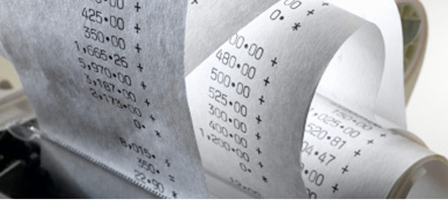GETTING AROUND THE KIDDIE TAX
Article Highlights:
- Reason for the Kiddie Tax
- Legal Ways to Avoid It
- Investments that Avoid the Kiddie Tax
- Other Tax-advantaged Moves for Children
Congress created the “Kiddie Tax” to prevent parents from placing investments in their child’s name to take advantage of the child’s lower tax rate. Kiddie Tax rules apply most often to children through the age of 17, although children aged 18 through 23 who are full-time students may also be affected. Under the Kiddie Tax, a child’s investment income in excess of an annual inflation adjusted floor amount ($2,000 for 2014) is taxed at the parent’s tax rate rather than the child’s. These rules do not apply to married children who file a joint return with their spouse.
Depending upon your circumstances, this can be either a tax return preparation nuisance or a penalty tax – or, maybe, both. Parents have the option of including their children’s investment income on their own return and thus avoiding the hassle and cost of filing a separate tax return for the children. For higher-income taxpayers who are subject to the net investment income tax, electing to include a child’s income on their own return may subject the child’s investment income to this new, punitive 3.8% surtax on net investment income tax.
Many insightful parents seek tax-advantaged ways to put money aside for their children’s education, first home, etc. They should not be deterred by the Kiddie Tax, as there are legal ways to avoid it. This is generally accomplished by making investments that produce tax-free income or that defer income until the year the child reaches age 18 (age 24 if a full-time student). If, at that time, the child has little or no other income, the deferred income could be realized with little to no income tax.
The following are examples of investments that either defer income or generate tax-free income. However, you must also consider that some of these might have a lower rate of return than a taxable investment
- U.S. savings bonds – Interest can be deferred until the bonds are cashe
- Municipal bonds – Generally produce tax-free interest income for federal taxes. Most states with a state income tax also permit tax-free treatment of interest from bonds of that state or local governments within that state.
- Growth stocks – Stocks that focus more on capital appreciation than current income. The child could wait to sell them until after attaining age 18 (or age 24 if a full-time student) at a time when he or she has little or no other income. Another technique is for the parents to gift appreciated stock to their children, thereby shifting gain to the children when the stock is sold. Thus, each parent could gift appreciated property, such as stock, value not to exceed the annual gift tax exclusion amount ($14,000 for 2014) to each child without current tax consequences. Later, when the child sells the appreciated property, the child would pay the tax on the parent’s appreciation.
- Mutual funds – Mutual funds that focus on growth stocks or municipal bonds. Although they might throw off some taxable income, their primary goal is capital appreciation or tax-free income.
- Unimproved real estate – This provides appreciation without current income.
If the family has a business, the business could employ the child. The child’s earned income is not subject to the Kiddie Tax rules and will generate a deduction for the family business (assuming the wages are reasonable for work actually performed). The child’s earned income can offset the standard deduction for a dependent and the excess income will be taxed at the child’s rate (not the parent’s). In addition, the child would also qualify for an IRA, which provides additional income shelter.
If you have questions related to the “Kiddie Tax,” please give this office a call.








Leave a Reply
Want to join the discussion?Feel free to contribute!